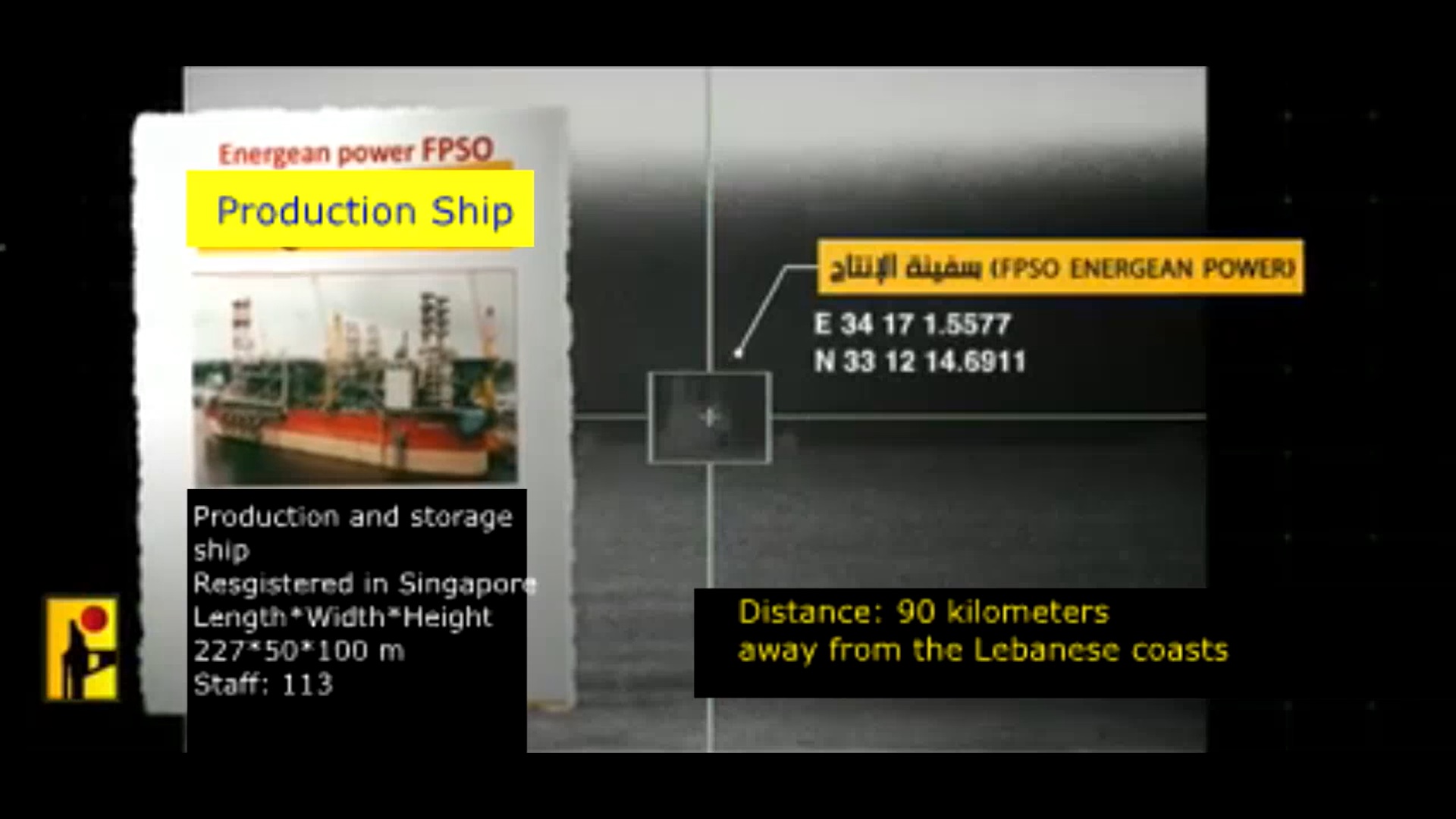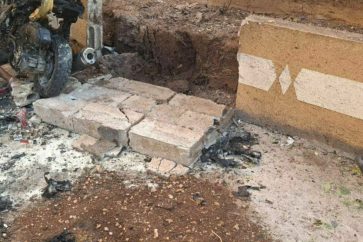Lebanon delivered on Tuesday its response to US Energy Envoy Amos Hochstein’s maritime proposal, with the ball being in the Israeli court to decide on the awaited deal.
Lebanese daily Al-Akhabr reported that Deputy Speaker Elias Abou Saab, tasked by President Michel Aoun, handed over Beirut’s response to the US Embassy which for its part delivered the reply to Hochstein at once. The US mediator then sent a copy of the response to the Israeli side, according to the daily.

Lebanese concerned parties had been throughout Tuesday finalizing the official response based on what had been reached upon during the technical meeting and the tripartite meeting between President Aoun, Speaker Nabih Berri and (caretaker) PM Najib Mikati on Monday, according to the daily.
The final draft was structured by President Aoun’s team which referred to experts in international law and geographical issues within the Lebanese Army, Al-Akhbar added, noting that Speaker Berri and PM Mikati looked into the final draft before sending it by Bou Saab.
The paper quoted well-informed sources as saying that Hochstein had an idea about the Lebanese notes on his proposal.
“Conflicting information emerged by those who contacted Hochstein on his impression on the Lebanese response. Some assured that he understood the notes as being logical and can be taken into consideration. Others considered that Hochstein was pressing Lebanon in order not to ‘go far’ with demands that could negatively affect Israeli PM Yair Lapid whom Washington now frankly prefers his victory over former PM Benjamin Netanyahu,” Al-Akhbar reported, citing the sources.
It noted that some Lebanese sides were informed by US officials that Washington has been dissatisfied with Netanyahu after the Israeli opposition leader broke a promise he made to President Joe Biden not to mix up maritime talks with Israeli elections.
Lebanese Notes on Hochstein’s Proposal
 Meanwhile, the Lebanese daily reported that the Lebanese notes dwelled with emphasis on that the maritime borders will not be linked to the land borders and that the so-called ‘floats line’ will never be recognized by Lebanon.
Meanwhile, the Lebanese daily reported that the Lebanese notes dwelled with emphasis on that the maritime borders will not be linked to the land borders and that the so-called ‘floats line’ will never be recognized by Lebanon.
“The (maritime) agreement tackles the demarcation of the Exclusive Economic Zones (EZZs) of the two sides, and is not related to land points neither in Ras Naqoura and nor in B1 point,” according to Al-Akhbar.
Concerning Qana field, which was referred to in Hochstein proposal as ‘South Sidon Prospect’, Lebanese concerned parties agreed to call it Sidon-Qana field, the paper said.
Lebanon also stressed in its response that the deal with French firm TotalEnergies is by no means related to the deal between the company and the Zionist entity.
“TotalEnergies’ activity in Lebanon’s EEZ doesn’t need a permission from any party,” Al-Akhbar said, citing the Lebanese reply delivered to Hochstein.
It revealed that there have been expectations that the impending agreement will be announced before mid-October.
‘Israel’ to Mull Lebanon’s Reply

In the same context, there have been concerns that negative developments could take place, Al-Akhbar reported, citing a top-level source, who noted that this issue is subject to the role played by the US.
The Israeli cabinet will convene on Thursday and it is likely to discuss the maritime deal with Lebanon, the daily reported, citing the source.
“If everything goes right, the US mediator, along with his team, will draft the final agreement which Lebanon asserted that it never amounts to an international accord but rather is a MoU (Memorandum of understanding),” the source added, as reported by Al-Akhbar.
“If Lapid government refuses the deal then it will be frankly declaring that Israel is opening the door for a wave of escalation that will never be controlled,” the source warned.
‘Israel’ Putting Undue Pressure on Lebanon
In another article by Al-Akhbar, Journalist Ali Haidar, an expert in Israeli affairs, reported that Israeli media put the brakes on the optimistic atmosphere regarding reaching an agreement with Lebanon.
He cited a report by Walla Israeli news site which offered a reading into Lebanese notes leaked by Al-Akhbar newspaper on Tuesday. Walla’s report expected that Lapid “won’t show flexibility regarding Israel’s security and economic interests.”
Haidar quoted other Israeli journalists who tried to show negative impression concerning the fate of the agreement.
“According to leaks, the Lebanese notes are related to two main demands that are considered by Israel as red lines: security interests and portion of possible profits,” Haidar quoted Israeli journalist Barak Ravid as saying.
The Lebanese expert in Israeli affairs considered the Israeli reports and analysis as part of an Israeli campaign aimed at intimidating Lebanon in a bid to achieve political objectives in the last phases of the agreement.
Source: Al-Akhbar Newspaper (Translated and edited by Al-Manar English Website Staff)




